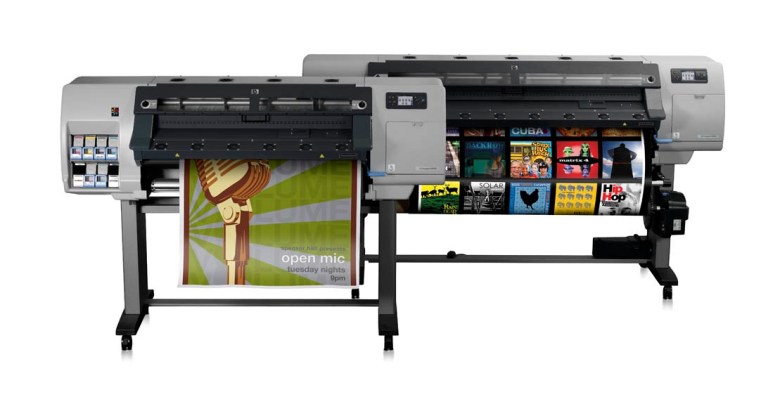
The company claimed that the machine’s ease-of-use, ability to print on a wide range of substrates, and environmental credentials will open up a raft of new applications and come to dominate the market currently served by eco-solvent machines from the likes of Epson, Mimaki, Mutoh and Roland DG.
“We believe this is going to be a turning point in large-format printing – this technology will disrupt the way people print,” said Designjet business manager Oscar Vidal. “Customers need to be able to do more things with one machine and to take cost out. We believe the Designjet L25500 will deliver those two things.”
The latex ink, previewed in the firm’s Designjet L65500 that was launched earlier this year, was claimed to offer equal or improved performance compared to solvent ink for printing on PVC (vinyl), as well as printing onto paper, fabrics, polyester and polyethylene – substrates that solvent technology struggles with.
The latex ink, which is water-based with a polymer that is bonded to the substrate by heat, doesn’t need air purification or solvent extraction. The output is also odourless, making it suitable for a range of indoor applications that solvent machines aren’t suitable for. Output is also promised to have an unlaminated exterior life of three years.
Another advantage claimed over solvent is that the print is dry and can be finished and mounted straight from the printer without requiring the “out gassing” period of several hours of solvent print.
The L25500 is available in 1.07 metre (42-inch) and 1.52m (60-inch) widths and can produce up to 23 square metres per hour. It uses CMYK light cyan and light magenta inks at a resolution of 1,200dpi.
HP has expanded its range of media for the latex ink to 19, with six new substrates, including a poster paper, a perforated window vinyl, a gloss cast vinyl, a PVC-free gloss adhesive film, a PVC-free wallpaper, and a PVC-free textile banner.
Third-party media from 3M, Avery Dennison, Intelicoat, Mactac and Neschen has also been approved for use with the L25500.
Read the original article at www.printweek.com.
Comment below to have your say on this story.
If you have a news story or tip-off, get in touch at editorial@sprinter.com.au.
Sign up to the Sprinter newsletter
